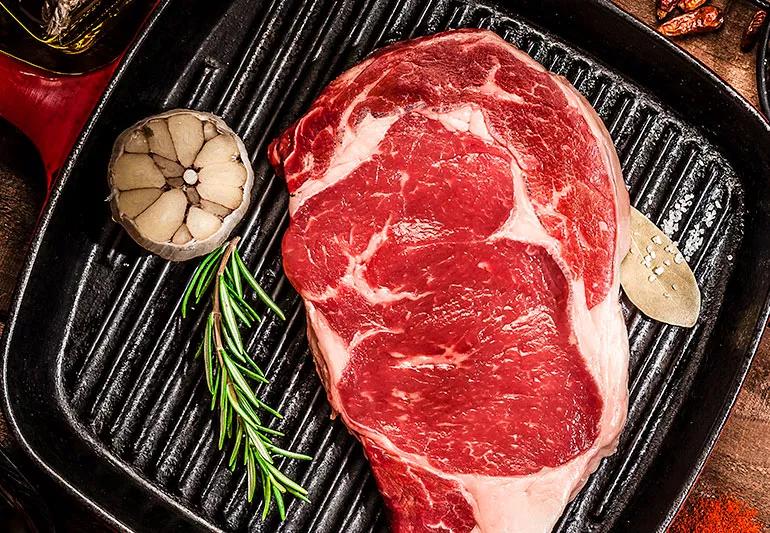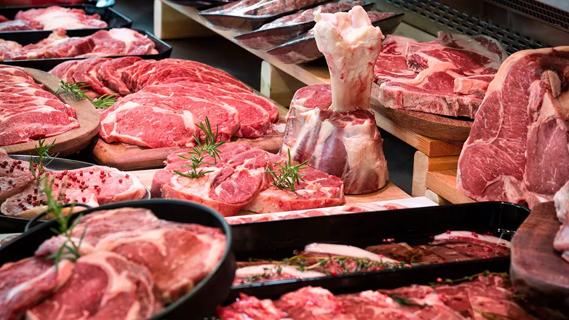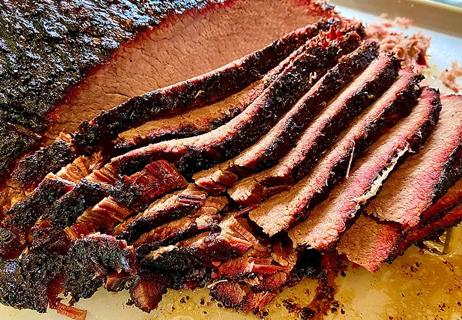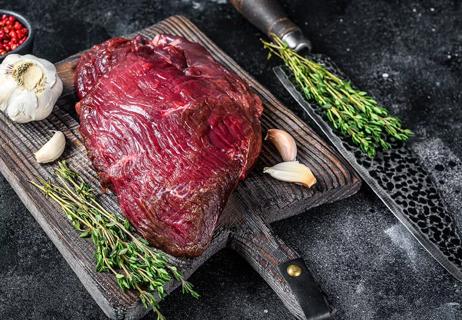Don’t be confused by new reports

For decades, scientific studies have shown a connection between eating red meat — like beef, pork, veal and lamb — and getting heart disease. That’s why the American Heart Association encourages limiting the amount of red meat you eat. (The right amount is different for everybody, but think deck-of-cards-size portions and not every day.)
Advertisement
Cleveland Clinic is a non-profit academic medical center. Advertising on our site helps support our mission. We do not endorse non-Cleveland Clinic products or services. Policy
And many doctors, like Stanley Hazen, MD, PhD, Co-Section Head of Preventive Cardiology, recommend the Mediterranean diet, which allows little if any red meat.
However, new analysis published in the Annals of Internal Medicine questions everything we’ve believed about red meat.
Authors of these new reports say that evidence linking red meat to heart disease (and cancer and other diseases) is relatively weak. They say the data isn’t strong enough to make dietary recommendations. That has launched a barrage of news stories claiming that red meat has gotten a bad rap.
But take this news with a grain of salt. Don’t go restocking your freezer with steaks and burgers just yet. Dr. Hazen explains in this Q&A.
Dr. Hazen: There have been innumerable studies — looking at hundreds of thousands of patients with millions of years of follow-up — that show a connection between eating red meat, getting heart disease and dying from heart disease. It’s remarkably consistent.
Exactly how red meat contributes to heart disease is debated. There probably are multiple reasons. Two likely contributors are the higher cholesterol and saturated fat content in red meat.
New data also points to choline and carnitine, other nutrients in red meat. Microbes in your gut break down these nutrients, generating TMAO (trimethylamine-N-oxide). High levels of TMAO in your blood increase your risk of hardened arteries, heart attack and stroke. There also may be other genetic or environmental factors, or a combination of factors, we haven’t uncovered yet.
Advertisement
Regardless, there is a connection. I totally disagree with the new reports that downplay past dietary studies. This is unfortunate and, I believe, irresponsible.
Dr. Hazen: Scientific studies come in different forms. Medical and research professionals view “prospective randomized trials” as the strongest and best quality. These trials randomly assign some participants to perform one set of behaviors and some to perform another.
Ideally, everything is the same except the single thing being tested. There are extremely few long-term randomized trials that have studied human diets with hard outcomes like heart attack, stroke and death. It’s hard to do because we humans are free-ranging animals. Studies like these would require controlling exactly what and how much a group of people eats day in and day out for many years.
For this reason, most diet studies are observational. They typically require people to fill out questionnaires about their eating habits. Researchers then analyze responses to determine risk of disease, for example, while adjusting for other factors (such as, “Do meat eaters exercise less? Do they eat more salt?”). This type of study isn’t as reliable as a randomized trial because people sometimes forget what they ate or miscalculate how much. But it still can give valuable information.
The authors who published the new reports in the Annals of Internal Medicine didn’t conduct a new trial. They instead reviewed previous studies and passed judgment on the quality of data. They determined that, because most studies on the health effects of eating red meat were observational, they’re not strong enough to guide dietary recommendations.
Dr. Hazen: Regardless of the type of study, research consistently shows that the more red meat you eat, the higher your long-term risk of getting and dying from cardiovascular disease. There is a clear association. And it’s been seen over and over in both men and women in various populations in various countries.
True, strictly speaking, we don’t know if the higher risk is caused by the red meat or associated factors (like the ketchup on the burger, the french fries on the side, eating meat instead of salad). But study after study has tried to adjust for these potential confounders. Just because these studies aren’t prospective randomized trials with hard outcomes doesn’t mean they should be ignored.
Dr. Hazen: Yes. There have been many, but they usually study things like weight, blood glucose or cholesterol. It would be very expensive and difficult to feed people a controlled diet for a decade or longer and count the heart attacks, for example.
Advertisement
The PREDIMED trial, published in 2013, is probably the closest we’ve come. It studied more than 7,000 people at a higher risk of heart disease. Each person was randomly assigned to one of three diets and followed for many years.
Researchers found that people eating a Mediterranean diet were 30-35% less likely to have a heart attack or stroke than people eating a standard low-fat diet. Notably, people following the Mediterranean diet in this study were urged to eat no red meat. However, the diet did include other protein sources — like fish and lean chicken — and plenty of vegetables, grains, some fruits, extra-virgin olive oil and nuts.
It’s true that instead of reduction in red meat, any one or more of these items could have contributed to the remarkable reduction in heart disease.
Dr. Hazen: According to most scientific studies, people who eat more red meat have a higher risk of heart disease. Even though I’m begrudgingly a meat lover, I advise people to reduce their heart risk by eating less red meat.
Advertisement
Learn more about our editorial process.
Advertisement

Simple swaps improve a comfort food staple.

Simple swaps improve a comfort food staple.

It has nutrients your body needs, but it also comes with some serious health risks

Packed with iron, vitamin A and protein, beef liver provides a healthy low-calorie meat option

Organ meat is packed with nutrients, but it’s not good for everyone

They’re classified as carcinogenic because of their link to cancer

Keep these tips in mind during hunting season

Type 2 diabetes isn’t inevitable with these dietary changes

Applying a hot or cold compress can help with pain